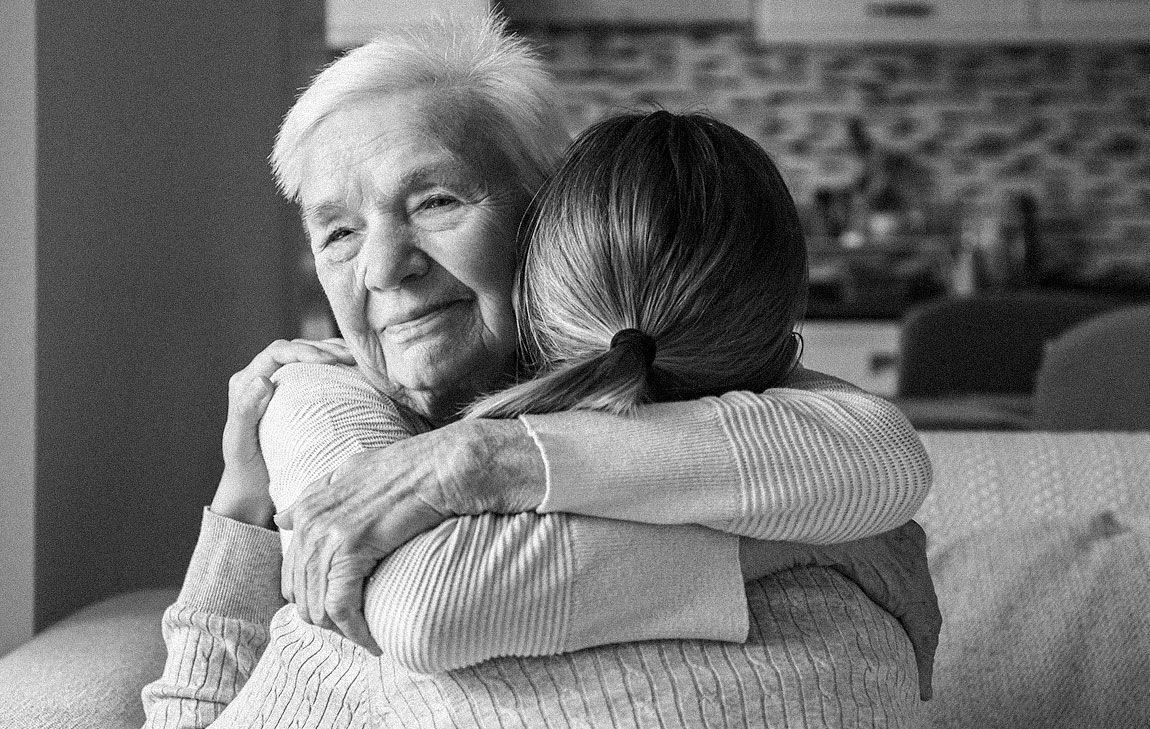How to Offer Your Condolences
It can be difficult to know the right words to tell someone who has recently lost a loved one. It’s undoubtedly one of the hardest things people go through in life, and no words can take away the pain of the bereaved. It’s normal to worry that you might say the wrong thing or fail to communicate how sorry you truly are. But offering your condolences, even if you feel uncomfortable or at a loss for words, does provide comfort, and shows them you care.
There are a few things to keep in mind when reaching out to someone who has just lost a person they love.

There Are No ‘Right’ Words
“I’m sorry for your loss,” is the most common, and perfectly acceptable way, to offer condolences. However, a family will hear this phrase over and over and over in the days and months following their loved one’s death. Personalizing your condolence message can be deeply meaningful to those grieving. Telling them a story, or how much their loved one made you laugh, or what you admired about them most can be comforting and sends the message you are willing to talk, share and listen.
If you didn’t have a personal relationship with the deceased, it’s ok to tell them about your connection to their loved one. Maybe your mom’s co-worker helped her get a promotion, or you’ve been told you inherited your great aunt’s eyes or love of writing, or the person was your spouse’s favorite cousin/aunt/uncle/teacher. Anything that makes a more personal connection makes for a better token of heartfelt sympathy.
Again, if you get nervous or can’t think of something else, “I’m sorry for your loss” is perfectly OK to say.
But There Are Some Words You Should Avoid
Although there are no perfect words of sympathy, there are some wrong ones. It’s best not to tell the bereaved that you know how they feel or share your own experience with loss. Each loss is personal and unique, just like every relationship—no one really knows how a person feels except for that person.
Avoid telling someone that the deceased is in a better place, or that it’s “part of God’s plan.” While these words come from the best of intentions, they often fail to have the intended effect. While religious faith can be a deep source of comfort and meaning, it can come off as downplaying the severity of their emotions. The person you’re speaking with may also not share your personal beliefs.
“It was their time” or “they lived a long, full life” do not mean loss should be felt less by the deceased’s family and friends. A life is a life, and a loss is a loss, regardless of how long an individual walked this earth.
Does the Medium Matter?
Our interconnected world allows for all kinds of remote communication – calls, texts, emails, video, etc. – and these channels are suitable to express your sympathy. But as a general rule, the more personal, the better.
The funeral, wake, or reception are traditionally the times in which people offer their sympathy in person. But if you are close to the bereaved, you may offer to stop by their home. Your sheer presence can be extremely comforting, even if you don’t talk, and sit in silence or just listen. Make sure to check in first to see if they’re up to having company.
A handwritten note in the form of a letter or in a card can be a very personal and beautiful way to show support. Of course, even a thoughtful email or text can bring comfort. The most important thing is that you show the person that you are thinking of them, that you feel for them, and that the person they loved was significant.
Sharing Your Sympathy With a Gift
Sending flowers or a meaningful token can communicate that you care. The funeral home will most likely have the option on the online obituary to send flowers, or you can send them directly to the family if you have their address. Thoughtful gifts can be consoling, remind them of a sweet memory, or even be useful during this time.
- Gift basket with tea, baked goods, or snacks
- Ready-to-heat meals or subscription meal service
- Gift cards useful services, such as yard care, dog walking, or a day spa
- A low-maintenance plant, such as a succulent or ZZ plant
- Gifts with personal connection to their loved one, like a framed photo, video, or donation to an organization or cause in the deceased’s name
The Gift of Lifting a Burden
The days following the death of a loved one can be overwhelming for families. Not only must they grapple with their loss, they’ll also be taking care of the many funeral details while still needing to attend to their everyday responsibilities. Oftentimes, taking care of simple chores is one of the best gifts you can give a grieving individual.
Offering to take care of tasks like grocery shopping, walking the dogs, watching their kids so they can have time alone, mowing the lawn, or doing the laundry can be extremely helpful. Rather than asking if “there’s anything I can do,” try to be specific—what tasks could you do to improve their day during this difficult time?
And remember: Grief doesn’t end after the last guest has left the funeral. The family will need your love and support for months after the initial loss.
We’re Here for You, Too
When you haven’t experienced the death of someone close to you, it can be difficult to know the best thing to say or do. Horan & McConaty is here for the families of Denver in their times of need, as we have been for over 100 years.
If you have questions about how to offer condolences, need to
plan a funeral or cremation, or would like to learn more about our services, call us at
(303) 757-4418 or come into one of our locations in the greater Denver area, Aurora, Lakewood, Thornton, Centennial, or Arvada. We’ll be here.



